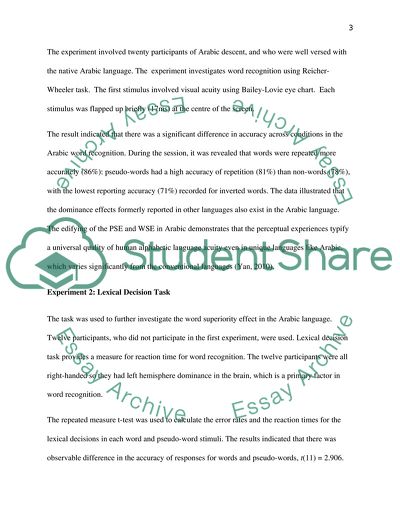Use of Lexical Decision for Word Recognition Assignment. https://studentshare.org/psychology/1870166-use-of-lexical-decision-for-word-recognition
Use of Lexical Decision for Word Recognition Assignment. https://studentshare.org/psychology/1870166-use-of-lexical-decision-for-word-recognition.


